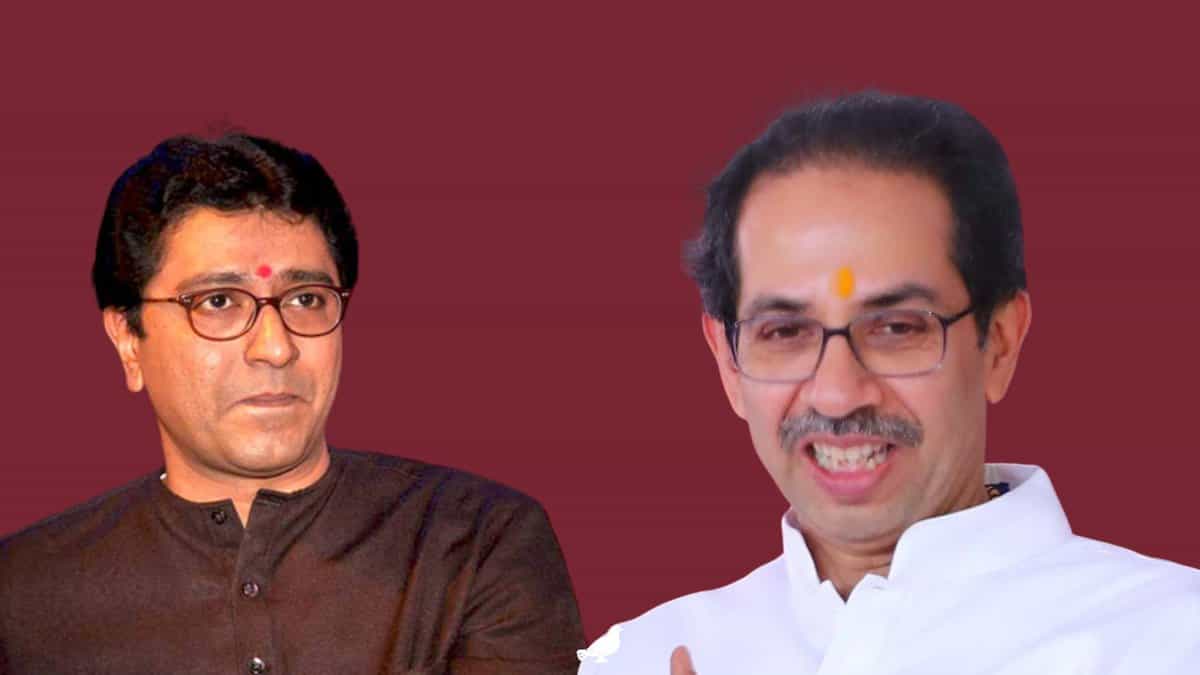
The Thackeray cousins, the nephew and son of the patriarch, the late Bal Thackeray, have suddenly created waves. Nephew Raj Thackeray has proffered his hand to Uddhav. Uddhav has shown his inclination to accept it, but not without conditions for a likely unity.
If the Raj Thackeray-led Maharashtra Navnirman Sena gets together with Uddhav’s Shiv Sena, the two entities can be a formidable combination. Both need each other politically, not only for filial reasons. Since Raj Thackeray left to form his outfit, the Sena has weakened, but Raj has not strengthened himself or his party. Despite a commanding presence, he has failed to score in electoral politics.
Raj is a careful speaker with measured articulation and commands the crowds with his oratory. Despite that, votes have eluded him. Also, Raj has done his flip-flops. He mocked Narendra Modi, and then backed him; much later cut deals with the Bharatiya Janata Party in the recent Assembly polls. When, notwithstanding the deal, he failed to get his son into the legislative body.
That’s why Uddhav Thackeray has laid down a condition in public speech. Raj Thackeray should swear before an idol of Chhatrapati Shivaji that he would remain loyal to the causes that the late patriarch had espoused. The two have suggested getting together, but “merger” has not been mentioned. In public perception, the MNS and Shiv Sena would be bigger than the sum of the parts.
Raj spoke of the need for the other to be not just “willing” but have an intense “desire” to work together. This view emerged in response to questions in a podcast by Marathi motion picture and theater artist and director Mahesh Manjrekar. Uddhav took the offer seriously enough to suggest conditions. Raj should break his seen and unseen connections with the current ruling dispensation.
Of late Raj has been busy reshaping his party and taken positions that are different from his old routine. He has been espousing the Marathi cause. He has underscored his Hindu credentials. He has a cadre more active than the Shiv Sena’s. Uddhav’s politics are less of the muscle-and-street kind.
There is a hint of urgency to strike a deal because the elections to the municipal bodies across the state, including and especially the Municipal Corporation of Greater Mumbai (MCGB). He who wins the MCGB almost owns the city which is a gold mine. This is a prized civic body with a budget bigger than many small states. A Marathi party would want to be in command of it.
What cards the two would deal to the other is unknown and hard to speculate about. It would, however, be excruciatingly difficult if the two decide on an alliance and not a clean merger, and decide who the numero uno would be and who the second in authority. Uddhav would not want to leave his premier status, and Raj would settle for a second-in-command position.
It will be a while before anything concrete emerges. There will be tough negotiations because ambitions within both parties are visible. One thing is for sure—there are many Marathi voters who want them to shake hands and let the past wash away. If unity materialises, Maharashtra politics will become more exciting.
The signs are visible. One thing is for sure—there are many Marathi voters who want them to shake hands and let the past wash away. If unity materialises, Maharashtra politics will

